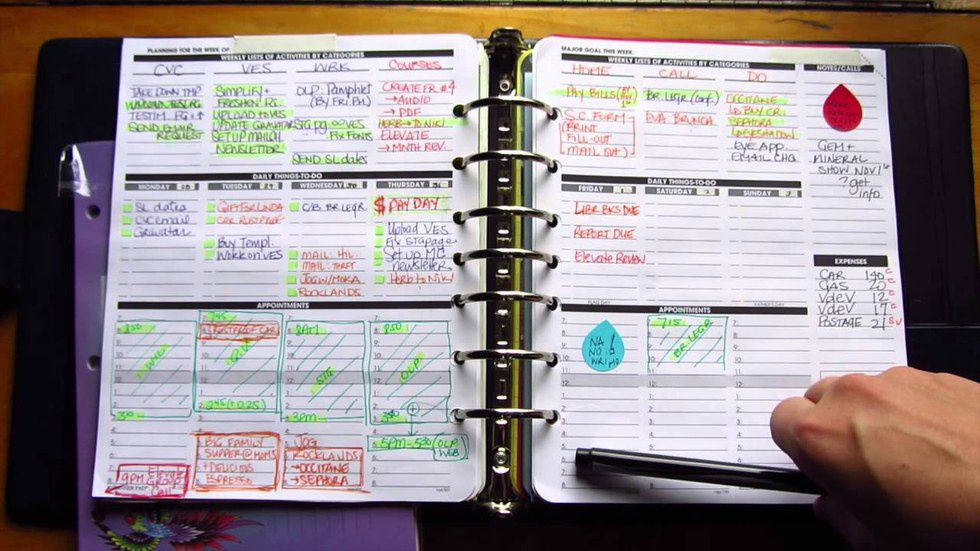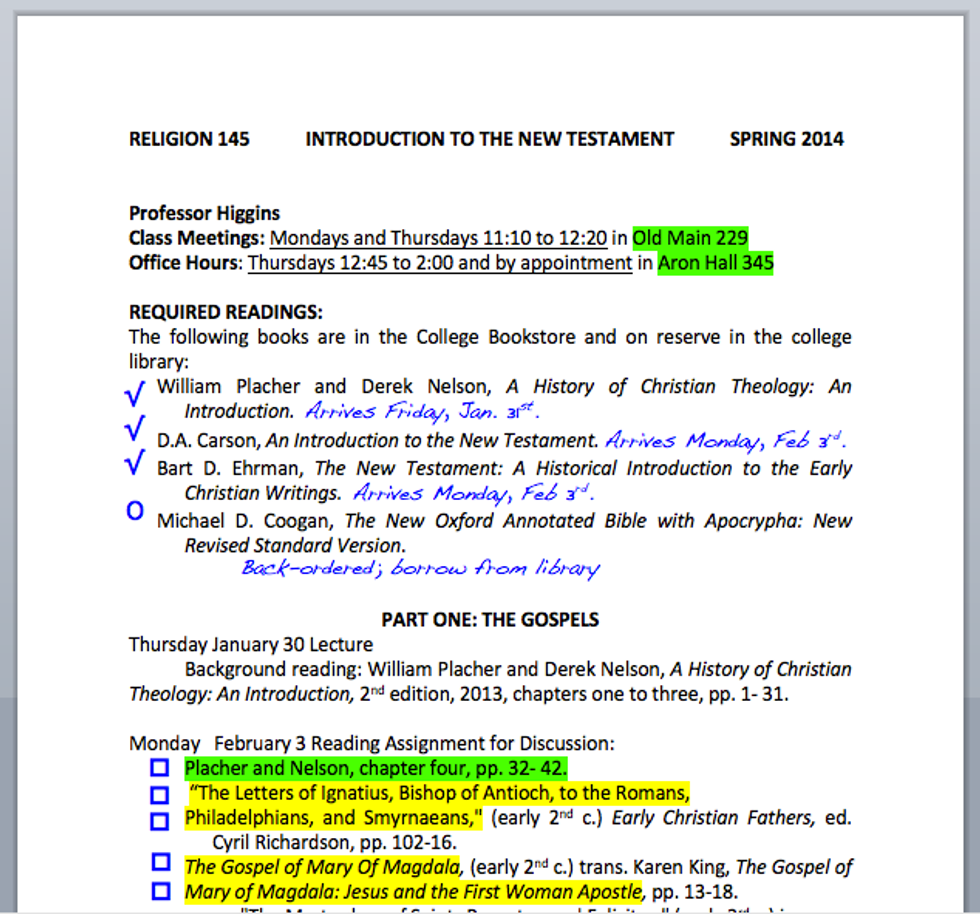What will classes be like? How will I get everything done? When will I be able to sleep? Am I going to survive the semester?
Photo via Giphy
Oh, August. It’s that time again. Students everywhere are preparing for the school year and anxiously awaiting the start of the new semester. As a student starting her third year of college, I can confirm that while it doesn’t get any less nerve-racking, you can get on top of your semester! All it takes is a little organization and some will power. Here are seven tips to help you succeed this semester:
1. Get on a regular schedule.
This may seem really difficult, but it is guaranteed to change your everyday performance. Your body thrives when you keep it on a regular schedule. We’ve all experienced the craziness of the day following a sleepless night, or the fatigue and grumpiness after missing a meal. So start waking up and going to bed around the same time everyday. It’s tempting to stay up all night or sleep in, but don’t do it. Once you’re on a regular sleep schedule, you’ll be able to figure out when you’re most productive. For some people, that can be after they wake up, before bed, or at random times throughout the day. Knowing when you are at your most productive will help you maximize your productivity and keep you on the path to success!
Make sure to eat at regular times, too. This prevents you from experiencing sudden decreases in energy and motivation, as well as stops you from becoming hangry!
2. Invest in a planner.
I absolutely cannot stress how important it is to have a planner. It will become your best friend throughout the semester. Take the time to create a color-coded system that allows you to differentiate between regular homework assignments, papers, and exams. Write down your due dates as soon as you receive them; this will prevent your deadlines from sneaking up on you all at once. Planners aren’t just for your assignments. Use your planner to keep track of work, social events, and scheduling yourself some down time.
Outside of classes, I work part-time and am involved in multiple on-campus organizations. I use my planner to keep track of everything from homework to date night! Not only do I update my planner as things come up, but I take a few minutes every Sunday to review what I have on my schedule for the upcoming week. This helps me mentally prepare for the week ahead and figure out how to best accomplish everything.
If you aren’t interested in carrying around your typical notebook-style planner, a quick search through your phone’s app store will provide you with several digital planner options! Even Google Calendar is a great place to start getting yourself organized.
Photo via Youtube
3. Become one with your syllabi.
All jokes aside, syllabus week is probably the most important week of the semester. Your professor is taking the time to tell you what their expectations are, what assignments to expect, and when those assignments are due, all before they start to cover course material. If there is one day to pay attention in class no matter what, it’s syllabus day.
Take the time to annotate your syllabi. Highlight assignment due dates in one color, and exam days in another. Pencil these dates onto your calendar so you aren’t surprised about them halfway through the semester. It might seem early, but even if the dates change, you’ll still have plenty of notice. Also, take the time to circle the absentee policy for each class and any other expectations the professor might list. It’ll stop you from being the person that asks questions that were already answered on the syllabus.
Photo via Sara Laughed
4. Make an assignment list.
I am a HUGE fan of making to-do lists. When I know I have a lot of assignments to work on, I usually write them out on a to-do list and organize them by due date. Assignment lists don’t need to be super detailed; all you need is the name of the assignment and when it needs to be completed. This allows you to prioritize what you need to work on with just a glance at your list. Assignment lists also allow you to set reasonable goals for yourself throughout the semester. Once you’ve completed something on your list, you then get the satisfaction of being able to cross it off.
5. Find a note-taking system that works for you.
Everyone takes notes differently, because everyone processes information in a different way. THAT IS NORMAL. What’s important is to find a note-taking system that works for the way you process information. Some people are able to read information and highlight key points to study later. Others read the information and then rewrite it in their own words. Personally, I like to annotate the text as I read, then create an outline. I highlight key words and information, make notes in the margins, and star information to come back to later.
Finding a note-taking system that works for you will make it easier for you to study and actually retain information. If you don’t know what system works for you, here’s a video from College Info Geek that discusses different note-taking strategies that you can try this semester!
6. Know your body.
It’s pretty easy to let yourself get bogged down in your work. You tell yourself that you’ll push through until you finish, regardless of how stressed and tired you feel. I’m here to tell you that that logic is terrible. When you find yourself becoming tired, cranky, or unfocused, it’s your body telling you to take a break. Staying in one place and working on the same thing for hours becomes monotonous, and your performance begins to suffer. Your brain needs a break in between bouts of studying in order to effectively process and store information.
Studies show that studying for 40-90 minutes, and then taking a short break, will help you retain more of the material and keep you focused. If you find yourself becoming increasingly distracted as you work, give yourself a break. Go for a walk, grab a snack, or just relax for a few minutes. Your body will thank you, your academic performance will improve, and life will seem a whole lot more enjoyable.
7. Get some sleep!
“Sleep is for the weak!”
Wrong. I don’t care how much you have going on. Get some sleep. Most people need at least eight hours of sleep, with teens needing over nine hours of sleep in order to function properly. Sleep is essential to the proper functioning of your mind and body. Lack of sleep severely hurts your health and prevents your brain from storing your memories at the end of the day. If you truly want to have a successful semester, make sure you’re getting the sleep your body needs at night. If you can’t get that sleep at night, a 20-40 minute nap will help you feel more focused and alert during the day.
Photo via The College Solution
Having a successful semester isn’t just about staying organized and getting all of your work done on time. It’s also about how well you take care of yourself and manage your physiological needs. So if you want to succeed this semester, remember to take care of yourself.

























